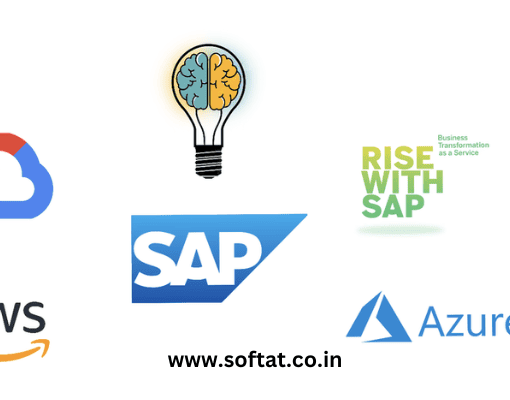In the ever-evolving landscape of enterprise solutions, SAP custom development stands out as a crucial aspect of tailoring SAP systems to meet specific business requirements. Let’s delve into the world of SAP custom developments, exploring its components, advantages, challenges, and future trends.
Why Choose SAP Custom Development?
Addressing Unique Business Needs
One size does not fit all in the business world. SAP custom developments allow organizations to address unique challenges and specific requirements that may not be met by standard SAP solutions.
Enhancing System Functionality
Custom development empowers businesses to enhance the functionality of their SAP systems. It’s about going beyond the standard features to create a solution that aligns perfectly with business processes.
Key Components of SAP Custom Development
SAP ABAP (Advanced Business Application Programming)
ABAP is the programming language used for SAP custom developments. It allows developers to create custom reports, interfaces, and enhancements within the SAP environment.
SAP Fiori Custom Apps
SAP Fiori, known for its sleek and intuitive design, can be customized to meet specific business needs. Custom Fiori apps provide a personalized user experience tailored to the organization’s requirements.
Customizing SAP Modules
Tailoring standard SAP modules to fit unique business processes is a key component of custom development. This involves adjusting configurations and functionalities to better suit the organization’s workflow.
Advantages of SAP Custom Development
Tailored Solutions
The primary advantage of custom development is the ability to tailor solutions to specific business needs. This ensures that the SAP system becomes a strategic asset that aligns seamlessly with organizational goals.
Increased Efficiency
Custom solutions are designed with efficiency in mind. By streamlining processes and eliminating unnecessary steps, businesses can significantly boost productivity and reduce operational costs.
Improved User Experience
User experience is a top priority in SAP custom developments. Customized interfaces and functionalities contribute to a more intuitive and user-friendly environment, enhancing overall user satisfaction.
Getting Started with SAP Custom Development
Understanding Business Requirements
The journey begins with a deep understanding of the organization’s business requirements. This involves close collaboration with key stakeholders to identify pain points and opportunities for improvement.
Identifying Customization Opportunities
Not every aspect of SAP needs customization. Identifying the right opportunities for customization ensures that resources are directed toward areas that provide the most significant impact.
SAP Custom Development Lifecycle
Analysis
In the analysis phase, the focus is on understanding business processes, defining objectives, and identifying areas for improvement through customization.
Design
The design phase involves creating a blueprint for the custom solution. This includes defining data models, user interfaces, and integration points.
Development
Once the design is finalized, developers begin coding the custom solution using SAP ABAP or other relevant technologies.
Testing
Thorough testing is crucial to ensure the custom solution functions as intended. This phase includes unit testing, integration testing, and user acceptance testing.
Deployment
After successful testing, the custom solution is deployed to the SAP landscape. This may involve coordination with IT teams to ensure a smooth rollout.
Maintenance
Post-deployment, ongoing maintenance is necessary to address any issues, implement updates, and ensure the continued relevance of the custom solution.
Best Practices in SAP Custom Development
Thorough Requirement Gathering
Successful custom development starts with gathering comprehensive requirements. This involves engaging with end-users and stakeholders to understand their needs and expectations.
Code Reusability
Encourage developers to follow best practices for code reusability. This not only expedites development but also makes it easier to maintain and update custom solutions.
Documentation
Comprehensive documentation is essential for the longevity of custom solutions. It facilitates easier troubleshooting, knowledge transfer, and future enhancements.
Challenges in SAP Custom Development
Integration Challenges
Integrating custom solutions with other SAP modules or external systems can present challenges. Thorough testing and collaboration with integration teams are crucial to address these issues.
Maintenance Complexity
As systems evolve, maintaining custom solutions can become complex. Regular updates and a proactive approach to addressing issues are essential to manage maintenance complexities.
Future Trends in SAP Custom Development
AI and Machine Learning Integration
The integration of artificial intelligence (AI) and machine learning (ML) into custom solutions will open new possibilities for automation and predictive analytics.
Cloud-Based Custom Solutions
The shift towards cloud-based solutions will influence SAP custom developments. Businesses will increasingly explore the flexibility and scalability offered by cloud platforms.
Case Studies in SAP Custom Development
[Include brief summaries of two or three case studies, highlighting the challenges, solutions, and outcomes.]
Tips for Successful SAP Custom Development Projects
Collaboration with Key Stakeholders
Involve key stakeholders throughout the development process. Their insights are invaluable for creating custom solutions that truly meet organizational needs.
Continuous Training and Updates
Stay abreast of SAP updates and advancements. Continuous learning ensures that custom solutions leverage the full capabilities of the SAP ecosystem.
SAP Custom Development vs. Out-of-the-Box Solutions
Contrasting Features and Considerations
Explore the distinctive features and considerations when choosing between custom development and out-of-the-box solutions.
Read More:





